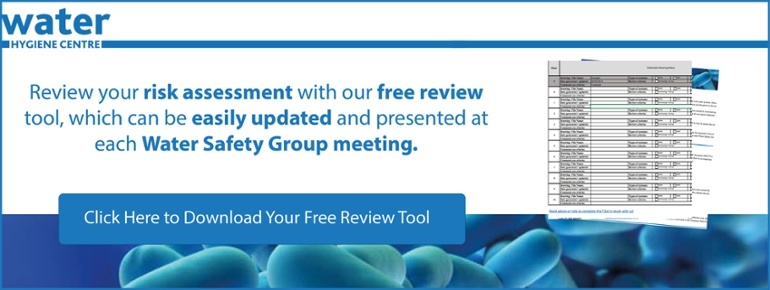A simple internet search using the words, “Legionella and Schools” identifies many news articles with instances of schools being closed following a Legionella “outbreak”.
- Legionella detected at West London Primary School
- Nuneaton school building shut as Legionella bacteria found
- Legionella bacteria discovered in water system at Milton Keynes school
- Ipswich school Broke Hall reopens after Legionella discovery
- Auchenharvie Academy re-opens after Legionella scare
Reading further, you will discover that these shutdowns were caused by Legionella bacteria being found in the schools’ water systems, which subsequently resulted in the water systems being cleaned and disinfected. The UK recognises the availability of water to be a basic human right and a school requires water for drinking, cleaning, washing, flushing toilets and many other reasons besides.
The importance of Legionella training
Although it is understandable that a school would perhaps need to close, could this have been avoided? Would training have helped limit the school closures? The answer of course is very likely to be yes. Suitable Legionella training of staff would certainly help to identify problems before they occur, thus reducing the potential for school closure.
HSG274
Firstly, it is important to note that newspaper headlines can be misleading when referring to Legionnaries' Disease ‘outbreaks’. The HSE [HSG274 Pt 2] defines an outbreak ‘as two or more cases where the onset of illness is closely linked in time (weeks rather than months) and where there is epidemiological evidence of a common source of infection, with or without microbiological evidence’, so the presence and identification of the bacteria alone is not deemed to be an ’outbreak’, even if the bacteria when present does needs removal locally.
Controlling Legionella Risk
If you are the nominated “Responsible Person” for Legionella at a school, college, or university, it is important to be aware that Legionella is a naturally occurring bacteria, and eliminating the risk Legionella represents, is not reasonable or practicable. Instead, you must “as far as is reasonably practicable” demonstrate you are trying to control it. The HSE has published detailed guidance - ACoP L8 The control of legionella bacteria in water systems, to help Duty Holders and Responsible Persons do this.
This blog will emphasise the importance of Legionella training for management. From a legal point of view, COSHH, Regulations 8 and 12; Management of Health and Safety at Work Regulations, Regulations 5, 7, 10 and 13; HSW Act, Sections 2, 3, and 4, detail how employers must provide their employees with suitable and sufficient training. This applies to the management of water and the risks posed by Legionella bacteria and those who have a role in water safety, should be trained for the role they undertake.
Do you want to learn more about legionella training? >
HSG 274 Part 2 states “Inadequate management, lack of training and poor communication can be contributory factors in outbreaks of Legionnaires’ Disease. It is important that those people involved in assessing risk and applying precautions are competent, trained and aware of their responsibilities.”
Indeed, one of the failures identified in the prosecution following the UK’s largest outbreak at Barrow-in-Furness in 2002 was the lack of appropriate training. The unappointed “Responsible Person” hadn’t received any Legionella training and the record of any health & safety training throughout the council was very poor.
Which Legionella training course would be suitable for me?
Legionella training courses are widely available in many different formats and aimed at different people within an organisation. These will range from management courses aimed specifically at the Responsible Person, Competent Person training for those undertaking monitoring or remedial tasks or more general Legionella Awareness training.
To manage and record your organisation’s employee training, you could use a simple Training Needs Analysis tool. This tool simply allows you to keep track of your team’s training records and easily helps you to identify when training has expired and requires refreshing.
 Training is an essential part of demonstrating 'competence'. Competence is the ability to do something successfully. Without training, quite simply, employees would not be adequately informed on how to carry out their roles successfully and in doing so, ensure the safety of others.
Training is an essential part of demonstrating 'competence'. Competence is the ability to do something successfully. Without training, quite simply, employees would not be adequately informed on how to carry out their roles successfully and in doing so, ensure the safety of others.
The importance of training should not be ‘news’ to anyone, but without it, we would not continue to learn and successfully mitigate Health & Safety risks as they occur.
Legionella training is no different, providing schools, colleges, and university employees with the knowledge to comply with guidance and regulations and to ensure they manage and maintain water systems to control the risks from Legionella bacteria.
Feel free to reach out if you have any questions about this blog or if you would like to consult with one of our experts for further advice on water hygiene.
Editor’s Note: The information provided in this blog is correct at the date of original publication – January 2023 (Revised April 2025).
© Water Hygiene Centre 2025










